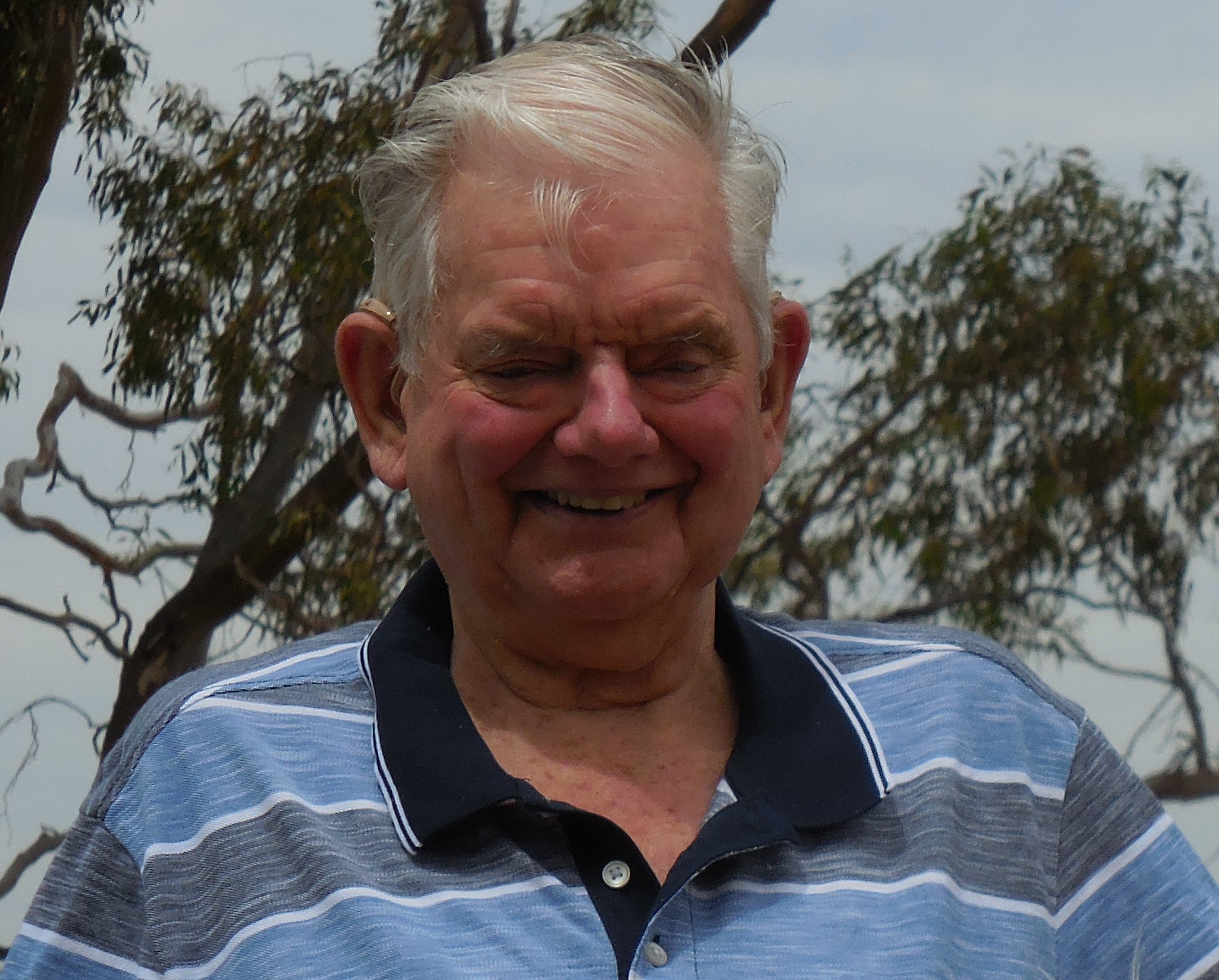Ron Hooper isn’t your average Aussie bloke. He’s an extraordinary individual who has faced many challenges but has managed to transform adversity into a rich and fulfilling life. For one thing, he did not allow blindness to stop his motivation to play cricket.
Recently I was asked by Blind Sports and Recreation Victoria (BSRV) if I would like to write about Ron for the BSRV newsletter. Of course, I said ‘yes’. My task was to condense 70 pages of text into 350 – 500 words. I managed to get it down to 762 words. It was not an easy task considering the number of experiences that have shaped his amazing life.
Ron Hooper has written two amazing memoirs about his life. The historical
documents are full of anecdotes, both happy and sad, that outline his life and give
readers the opportunity to learn so much about the history of country Victoria and
Melbourne in the mid to late 1900s. There is so much we can all learn from Ron’s life
and how he coped with the challenges of losing his sight. Ron is an inspiration to all
of us.
Below you can read some extracts from Ron’s two documents, which span across 70
pages.
Early Years
Ron Hooper was born on the 5th of November 1940. It was a significant day
because it was Melbourne Cup Day and his father's birthday. For the first five years
of his life, Ron lived on a farm at Kanumbra, in the northeast region of Victoria. His
childhood was filled with a mix of experiences, some of which were quite
challenging. At the age of 18 months, Ron nearly died because he had pinks
disease. But with the love and support of his mother and his Aunt Pearl, he made a
full recovery by the age of two. Pinks disease is also known as acrodynia; it is
mercury poisoning during childhood.
Moving to Koriella
Shortly after Ron’s birth, the family moved to Koriella. At Koriella, Ron’s house was
opposite the railway station and the sheep yard. Ron has fond memories of the
sheep being loaded onto the train. He enjoyed and his sister, Lois enjoyed playing in
the sheep yard and the nearby sawmill where firewood was cut and then sent to
Melbourne on the train.
Daphne, Ron’s mother managed the neighbourhood post office, which was located
in their own home. Ron has vivid memories of customers ringing the bell, and his
mother promptly going downstairs to serve them.
School life
When Ron started at the Alexandra School, he went on the school bus that
conveniently stopped outside his house along with the children from Spring Creek
Road. In the wintertime, they had hot cocoa on arrival and again at playtime. After
school, the Spring Creek Road children picked up their bikes from Ron’s house and
rode home. Later, the family packed up and moved to Alexandra where they lived
until Ron was 11 or 12 years of age.
Ron continued his education at Yarck School for another couple of years until he
finally left school around the age of 14 or 14.
Loss of eyesight
In 1963, Ron’s eyesight began deteriorating and within a few years he was
completely blind. Tragedy struck when his father, Charles passed away as the result
of suicide. Despite the challenges, Ron found strength in his faith and the support of
his friends and family. Although he lost some of his independence, Ron’s enthusiasm
for life didn’t stop when he lost his sight.
Blind Cricket
Ron became interested in blind cricket, and he played in various teams and
tournaments. In 1965 to 1966, he was selected to play in in a carnival in Brisbane,
where his team emerged as the winners.
Eventually Ron moved to Melbourne and began a new chapter of his life as a blind
person. With support from the Royal Victorian Institute for the Blind (RVIB), Ron
learned how to use the long cane and navigate the streets of Melbourne. He also
learned how to use the public transport system. At first, he completely relied on the
guidance of a mobility teacher. Gradually, he gained confidence to venture out on his
own knowing the teacher was discreetly following him to ensure his safety.
Life as a Blind Person
Braille lessons were another part of his education. At first, the tactile dots felt
overwhelming, but he persevered and in no time, he learned how to read and write in
Braille. The RVIB provided Ron with tools to help him continue doing the things he
enjoyed. That’s when he discovered the joy of Talking Books.
Ron made many friends at the RVIB. One of them was Coralie, who was working at
the institute. They enjoyed spending time together and travelling by tram or train to
visit each other’s families. They also enjoyed going to live shows, movies and free
entertainment at the Myer Music Bowl. Ron and Coralie’s relationship flourished and
they got engaged in 1967.
They had an engagement party at the Reservoir Civic Centre that was attended by
family and friends. Immediately after the engagement party, they made plans for
their wedding.
Ron’s final words in his memoir, ‘My Life’ are;
“Saturday the 2nd of November – I woke up and it was our Wedding Day, “this was my last day as a Single Man””.





2 Responses
Ron has led a very interesting and fulfilled life together with many challenges. I enjoyed reading his memoirs. Well done to you in condensing 70 pages into 362 words as that wouldn’t have been an easy task!
Thanks Susan. It was a labour of love. Ron’s story is so inspiring and I enjoyed every word.